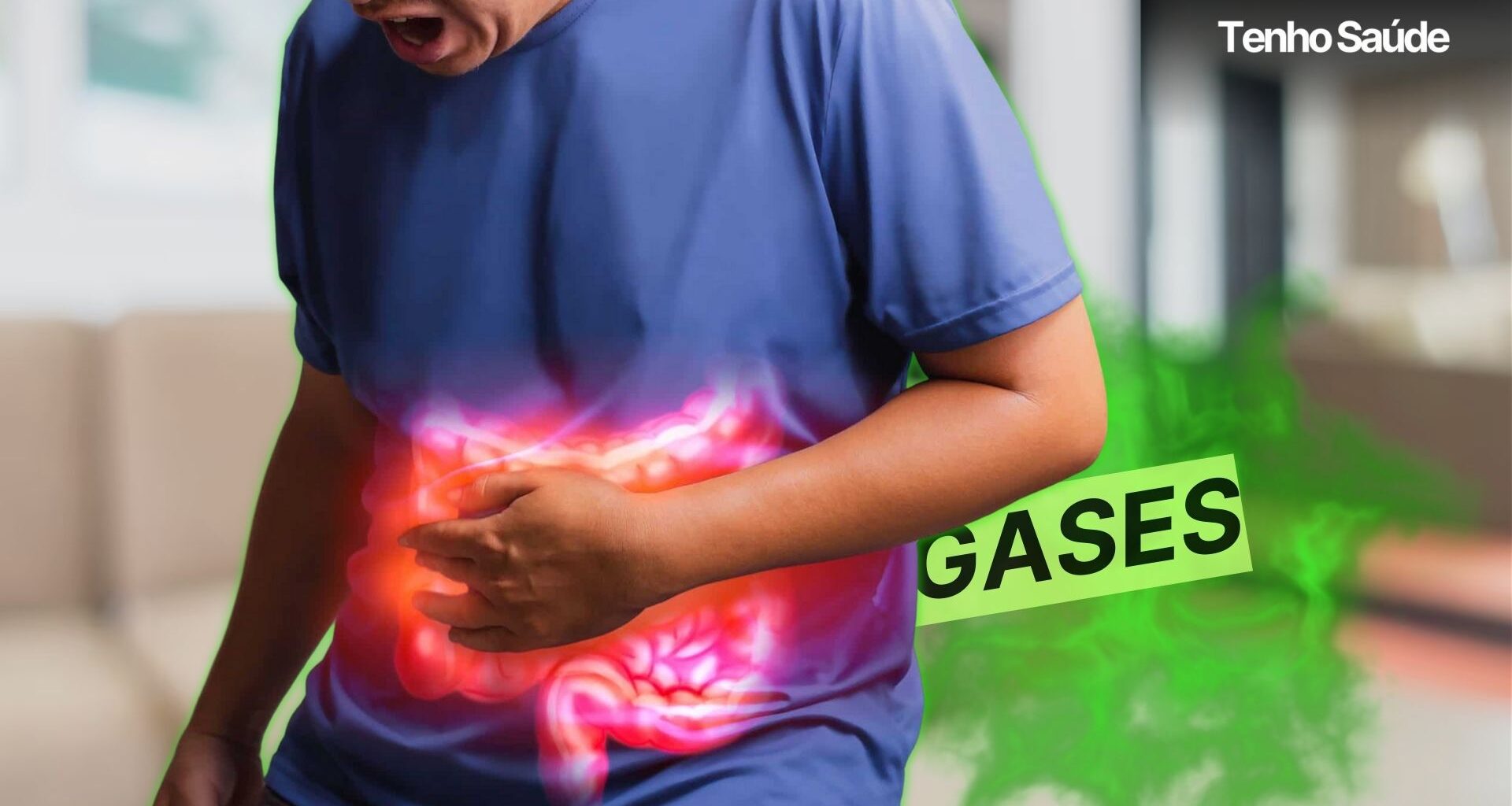Ah, intestinal gas… popularly known as “farts”; who has never suffered from that feeling of discomfort, pain, bloating and other embarrassing symptoms?
If you suffer from frequent farts, this article is for you. We will show you what they are, what the most common symptoms are, what can cause them, and most importantly, how to eliminate them.
So, get ready to discover everything you need to know to leave that flatulence in the past!
What are intestinal gases?
They are the result of a natural fermentation process that occurs in our large intestine, thanks to the bacteria that live there.
These microorganisms act in the digestion of fibers and complex carbohydrates, and as a consequence, end up releasing gases such as carbon dioxide, hydrogen and methane in the process.
Under normal conditions, “farts” are expelled from the body without any problems, but in some situations, they can accumulate and cause abdominal discomfort, bloating, burping and a lot of flatulence.
Flatulence, also known as “farting”, occurs when the digestive system has difficulty processing certain foods as they pass through to the stomach.
This condition occurs when the intestine is unable to properly digest complex carbohydrates as they pass through the stomach. The bacteria present in the intestinal flora then ferment these food residues, resulting in the release of gas in the gastrointestinal tract.
Symptoms
The most common symptoms include:
- Pain, cramps or discomfort in the abdominal region;
- Feeling of bloating and swelling;
- Audible abdominal noises;
- Flatulence;
- Burning in the stomach and/or throat;
- Belching (eructation);
- Feeling of satiety;
- Pain in the chest area (in more severe cases);
- Nausea and vomiting (in more severe cases);
- Feeling short of breath or difficulty breathing (in more severe cases).
Causes
In some cases, having these problems excessively and frequently can be a sign of health problems, such as irritable bowel syndrome, lactose intolerance, gluten intolerance or other digestive diseases.
Flatulence can be caused by a variety of factors, including:
- Diet: Certain substances and foods, such as some sweeteners, fructose, sweet potatoes, eggs, beans, lentils, broccoli, cauliflower and cabbage, can increase fart production.
- Lactose intolerance: People with lactose intolerance cannot digest lactose, a sugar found in milk and dairy products, which can cause gas and other digestive symptoms.
- Irritable bowel syndrome: a condition that affects bowel function and can cause abdominal pain, bloating, constipation, diarrhea.
- Medicines: Some medications can cause these conditions as a side effect, some examples are antibiotics and blood pressure medications.
- Digestion problems: the body's inability to properly digest food, constipation or diarrhea can result in flatulence.
Solutions to eliminate gases:
There are several strategies that can be adopted to alleviate uncomfortable symptoms, such as changing diet and lifestyle habits, as well as using medications and food supplements.
1. Changes in diet, habits and lifestyle:
- Avoid excess foods that cause fermentation, such as beans, broccoli, cabbage, cauliflower, onions, peppers and citrus fruits;
- Avoid fatty and fried foods, as they can slow down digestion and increase production;
- Reduce your intake of foods high in sugar and simple carbohydrates, such as sweets, pasta and white bread, which are fermented by intestinal bacteria and can produce a lot of gas.
- Chew your food thoroughly and eat slowly to avoid swallowing air during your meal.
- Drinking plenty of water promotes the elimination of gases;
- Do not drink liquids during meals, as this dilutes gastric juices and can interfere with digestion.
- Avoid carbonated drinks such as sparkling water, soda and beer;
- Exercising helps move and release gas through the intestines.
- Avoid chewing gum or smoking, as this can lead to excessive air swallowing.
- Add digestive herbs and spices, such as ginger, mint and cumin, to your diet to aid digestion and reduce intestinal gas.
2. Medications and supplements:
If diet and lifestyle changes don't relieve your symptoms, you may need medications or supplements. Some options include:
- Antispasmodics: medicines that help relieve abdominal pain and reduce gastrointestinal muscle contractions, such as simethicone. (the use of any medicine must be prescribed by a doctor and following the correct instructions on the package insert).
- Probiotics: supplements that help balance healthy bacteria in the gut.
- Digestive enzymes: supplements that help digest food and reduce gas production.
3. 2-ingredient tea that eliminates gas:
Nutritionist Natália Stofel reveals a recipe for a tea with just two powerful ingredients to relieve these symptoms in an easy, practical and very cheap way. Check out the step by step instructions on how to prepare it:
4. Seven scientific techniques:
We at Tenho Saúde have developed a article based on proven scientific studies, listing 7 simple techniques to eliminate farts. Check it out:
Precautions:
If you are suffering from severe and persistent symptoms, such as severe abdominal pain, bloating, excessive flatulence, constipation or diarrhea, it may be time to schedule an appointment with a gastroenterologist, a doctor who specializes in treating diseases of the digestive tract.
Biographical references:
1. Vandenplas, Y., et al. (2015). Hydrogen breath test in gastrointestinal diseases: The North American consensus. American Journal of Gastroenterology, 110(4), 1187-1201.
2. Harbord, M., et al. (2017). Management of irritable bowel syndrome in adults: NICE guideline. British Medical Journal, 68(1), 1-48.
3. Suarez, FL, et al. (1999). Gas production in humans ingesting a soybean flour derived from beans naturally low in oligosaccharides. The American Journal of Clinical Nutrition, 69(1), 135-139.
4. Ozaki, R., et al. (2016). Lactose malabsorption and intolerance: Pathogenesis, diagnosis and treatment. World Journal of Gastroenterology, 22(4), 1063-1073.
5. by Lacy Costello, BP, et al. (2014). A review of the volatiles from the healthy human body. Journal of Breath Research, 8(1), 014001.








